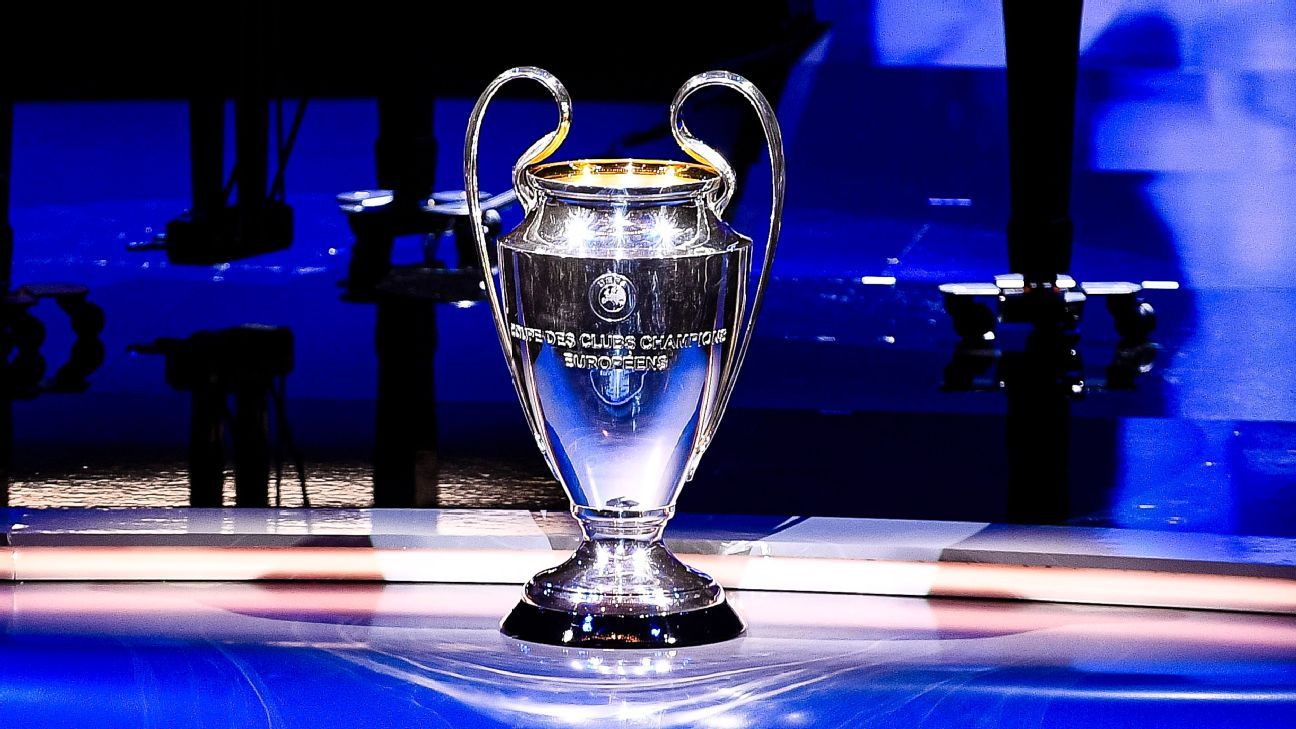European Leagues
How much money Dortmund or Real Madrid will get for winning Champions League

Champions League prize money is crucial for European clubs, boosting finances significantly based on performance.
The pay-out is split among winners, runners-up, semi-finalists, and more, with a performance-based reward system in place.
The pot includes money from performance results, coefficient pay-out, and broadcast market, significantly impacting all 32 teams involved.
With each passing year, the beautiful game has become all-too revolved around a pay-to-play structure – and continental football is the easiest way for clubs around the continent to boost their respective kitties. Winning – or even just featuring in – the Champions League has its obvious benefits.
It’s a sure-fire way of getting your side on the map for the lesser-known clubs, but the financial gain is somewhat unprecedented, particularly in comparison to those competing in the Europa League or the Europa Conference League. As a result, Europe’s top table is treated as the be all and end all of their respective seasons. Even for those who don’t reach the latter stages of the competition, strong performances can bring in additional income.
For this campaign, UEFA and the competition organisers revealed that the overall purse for Europe’s top table contenders would remain the same as 2022/23 – at €2.03 billion (£1.74bn/$2.19bn). Using figures courtesy of The Sporting News, here’s a comprehensive breakdown of how the Champions League prize money is given out: from how much the winner receives for reigning victorious to the finer details of how the rest of the teams are financially boosted.
Inside the Champions League Prize Money
Pep Guardiola’s Manchester City, after conquering Europe for the first time in their history last season, pocketed an eye-watering €80m (£68.4m/$86.4m). For either Real Madrid or Borussia Dortmund – the two sides that have reached this season’s rendition of the Champions League final – the maximum financial pay-out they could secure after the final is concluded is €85.14m.
In order to receive a healthy bounty, however, that would require either the Spanish or German side to have a perfect European campaign from start to finish. Looking beyond the eventual winner, there are several different ways in which the overall pot of money is handed out to completing clubs.
The Champions League sees the best players in the world compete — and some are very well paid.
The heaviest portion of money, which equates to 55% of the total prize pot, is distributed among the clubs dependent on their results in the competition. The other 45% is administered and split across the complete pool of 32 participants in two separate ways – 30% of it comes from the coefficient pay-out, and the other 15% from the broadcast market.
Performance-Based Prize Money
Winner earns an extra £17.2m (€20m)
The Champions League trophy on display
Performance-Based Money Distribution
Stage
Prize Money
Winner
£17.2m (€20m/$21.5m)
Runners-up
£12.9m (€15.5m/$16.12m)
Semi-finalists
£10.8m (€12.5m/$13.2m)
Quarter-finalists
£9.1m (€10.6m/$11.4m)
Round of 16
£8.3m (€9.6m/$10.3m)
Group stage wins
£2.4m(€2.8m/$3m)
Group stage draws
£800k (€930k/$1m)
Reaching group stage
£13.5m (€15.6m/$16.8m)
Simply, on the basis of how far a team progresses in the tournament, a grand total of 55% of the prize pot is handed out. Those who reach the group stage are guaranteed a pay out of £13.5m (€15.6m/$16.8m), while the results of the group stage games also yield financial gain.
Any draws result in an additional £800k (€930k/$1m), whereas group stage wins see teams pocket a healthy £2.4m (€2.8m/$3m) per victory. Those who crash out at the group stage are not in line for extra pay-outs, however, and the 16 teams who do manage to progress are promised additional money.
A total of £8.3m (€9.6m/$10.3m) is given out to the eight teams that secure Round of 16 status, while the pay-out increases to £9.1m (€10.6m/$11.4m) should they make further progress into the quarter-final stage. All four semi-finalists of this season’s Champions League – Manchester City, Bayern Munich, Real Madrid, and Borussia Dortmund – are awarded with an extra £10.8m (€12.5m/$13.2m), regardless of whether they win or lose.
Either Real Madrid or Borussia Dortmund will secure an additional £17.2m (€20m/$21.5m) when one of the aforementioned sides secures Champions League winners’ status at Wembley on June 1, 2024. The runner-up, instead, will earn £12.9m (€15.5m/$16.12m).
Coefficient Pay-Out
An additional £512m (€600m), which is equivalent to 30% of the total purse available, will be paid out across all 32 teams that participated in the 2023/24 Champions League – from the likes of Copenhagen to RC Lens to Young Boys all the way up to the final two finalists. The coefficient pay-out is based on UEFA’s algorithm that has tracked each side’s progress in UEFA tournaments, including the Champions League, Europa League and the Europa Conference League, over a 10-year period.
All 32 teams are ranked from No.1 and No.32 and there are bonus points on offer for those who have actually won trophies. All competing Champions League clubs are then paid accordingly to their position in UEFA’s club coefficient rankings, which can be viewed in full on the official UEFA website here.
The lowest-ranked team earns one share £1m (€1.137m), while the top-ranked team earns 32 shares £31m (€36.38m). The highest-ranked team left this season are Manchester City and the lowest-ranked was Newcastle United after their two-decade-long hiatus from European football.
Broadcast Market Pay-Out
Each season, a considerable chunk of prize money is up for grabs from Champions League broadcasting rights from all corners of the globe. This season, for all 32 teams, there is an additional £256m (€300m) on offer as part of the concluding broadcast revenue once all the broadcast-based deals are finalised.
For each country that is represented in Europe’s top tier club competition, from England to Switzerland, their federation is handed out a share of the final prize money, which is entirely dependent on the proportional value of each TV market.
This ensures that those leagues that are high in popularity – the Premier League, for example – are financially aided proportionally compared to other divisions – and federations – that rake in lower numbers of viewership. The total money is then split among the federations to their clubs using the following formula:
50% of the allocation to a national federation will be divided among the participating Champions League clubs from that nation based on fixed percentages determined by UEFA.
The other 50% is paid out in proportion to the number of matches played by each club in 2023/24.
The Champions League trophy on display.
As alluded to, last season’s winners Manchester City were awarded an additional £68.4m (€80m/$86.4m) for their Champions League exploits. Dortmund nor Madrid will rake in the absolute most available this term, given neither have boasted flawless records thus far. The former lost once and drew two games in their group stage – and they even lost 2-1 to Atletico Madrid at the quarter-final stage.
The Spanish side, however, have yielded the most amount of money thus far, having not lost a game. Having escaped the group stages with six wins, plus zero draws and losses, to their name, they have suffered a total of four draws from their six knockout outings. To learn how the Champions League prize money will be distributed for the 2024/25 season, please read below.

-

 Premier League1 day ago
Premier League1 day agoArsenal Star Olivia Smith Stretchered Off In FA Cup Scare — What It Means For The Gunners
-

 LaLiga1 day ago
LaLiga1 day agoHansi Flick Explains Lamine Yamal’s Frustration After Barcelona Win
-

 News1 day ago
News1 day agoAngry Arne Slot Slams Liverpool’s ‘Worst Performance’ Despite Late Win At Nottingham Forest
-

 Local News1 day ago
Local News1 day agoAlex Iwobi Masterclass Powers Fulham Revival At Sunderland
-

 Local News1 day ago
Local News1 day agoNaija Stars Abroad: Goals, Grit And One Absence That Shook Istanbul
-

 Premier League1 day ago
Premier League1 day agoAlex Iwobi: The Manager’s Dream Lighting Up Fulham’s Season
-

 News9 hours ago
News9 hours agoArsenal Star Eberechi Eze Leads Premier League Glam Squad At London Fashion Week
-

 More Sports10 hours ago
More Sports10 hours agoMayweather Vs Pacquiao 2: Boxing Legends Set For Historic Netflix Showdown In Las Vegas




















